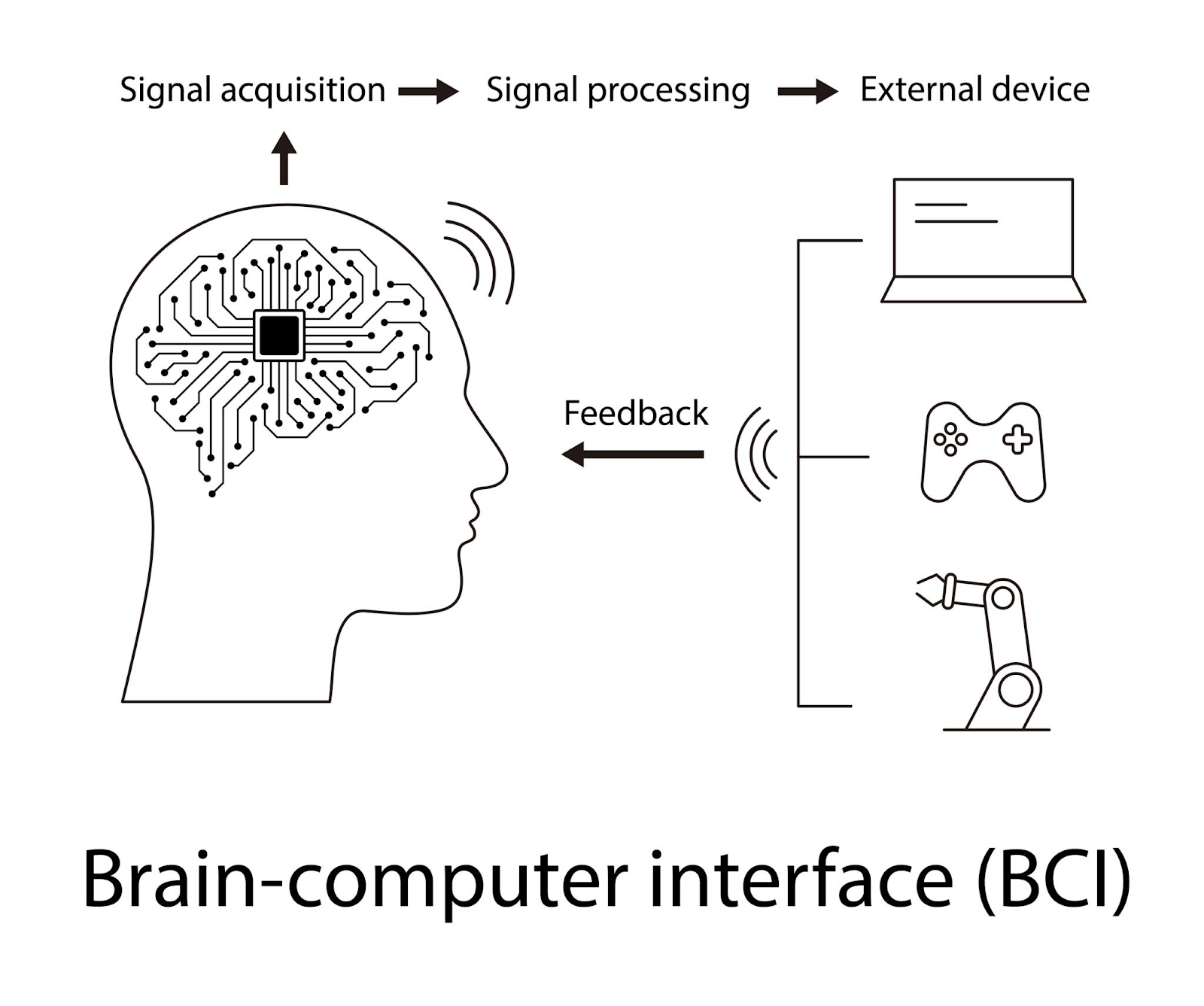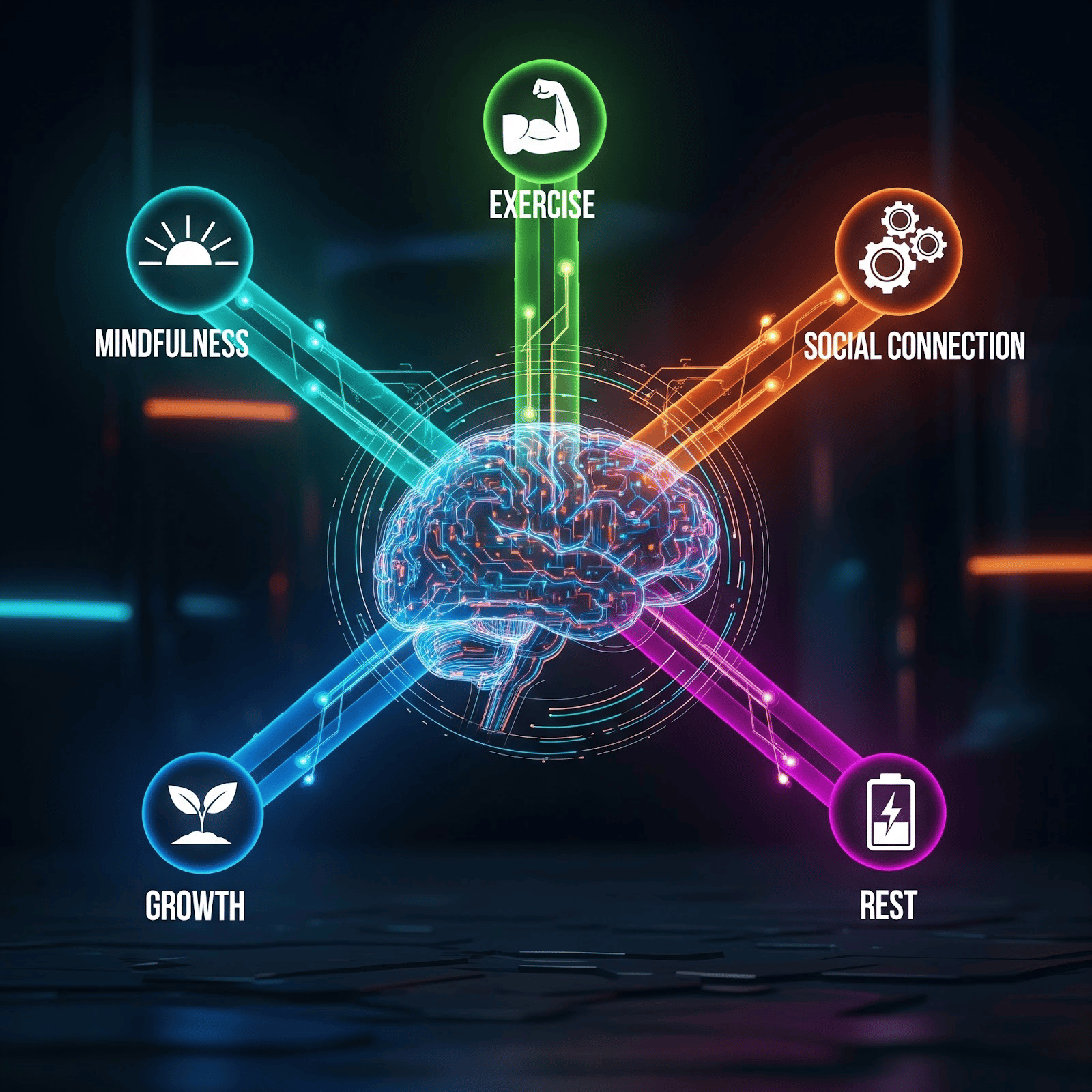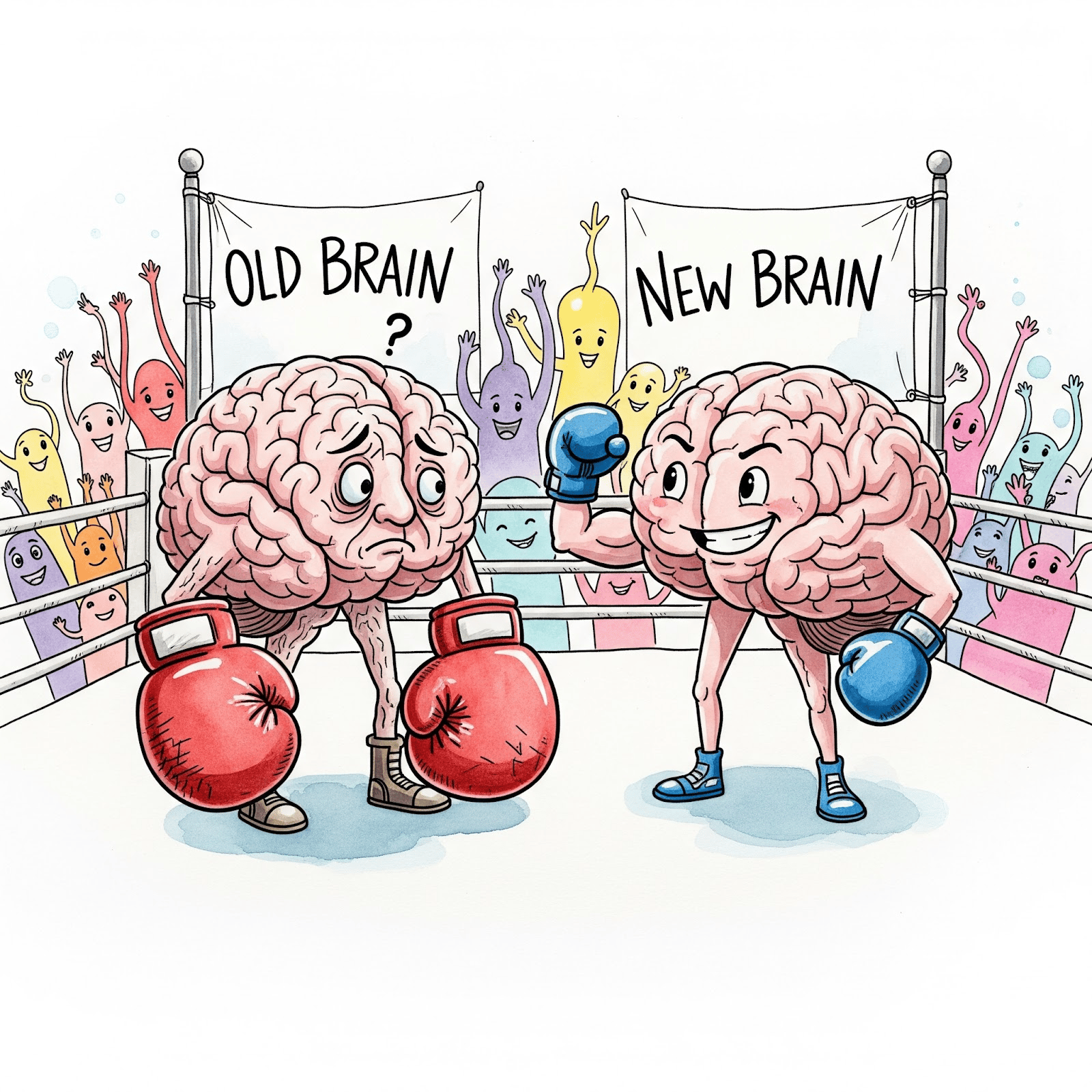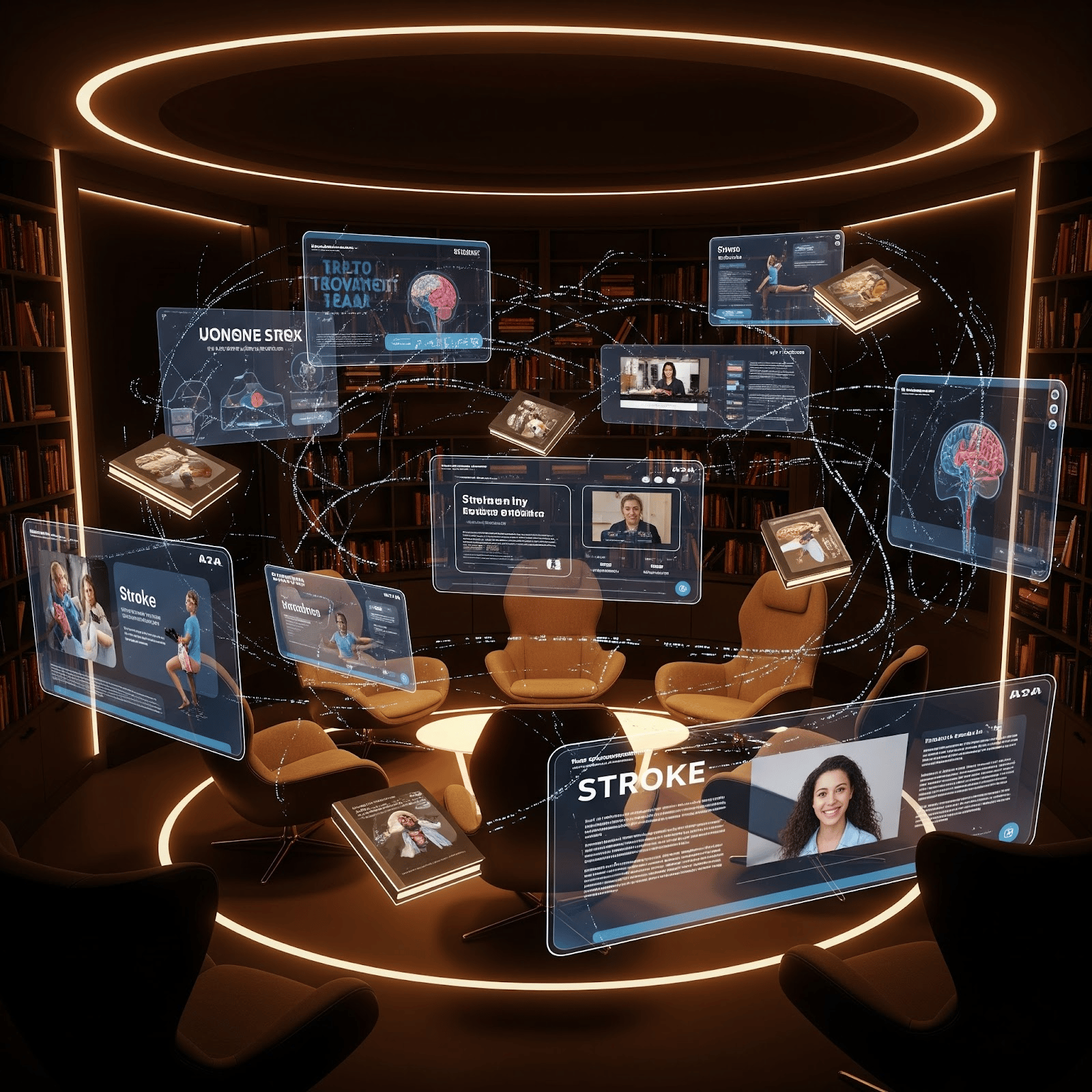- Chuck's Stroke Warriors Newsletter
- Posts
- Issue #111:Mind Over Stroke - How Your Brain Helps You Heal
Issue #111:Mind Over Stroke - How Your Brain Helps You Heal
Unlock Your Brain's Hidden Power for Recovery
Your Brain Doesn't Know It's "Broken"

Your Brain Doesn't Know It's "Broken"
Here's what no one tells you about stroke recovery: your brain is still fighting for you every single day.
While you're lying awake at 3 AM wondering if you'll ever feel "normal" again, your brain is literally rewiring itself. While you're frustrated that your left hand won't cooperate or that words feel stuck in molasses, millions of neurons are forming new pathways. While you're convinced progress has stalled, your brain is playing the longest game of chess you've ever seen.
The medical world loves to focus on deficits. What you've lost. What's damaged. What might never come back. But here's the brutal truth they often miss: your brain doesn't care about their timeline. It doesn't follow their textbook recovery curves. Your brain is an unstoppable force that's been keeping you alive since before you were born, and it's not about to quit now.
The real problem? We've been taught to see our post-stroke brains as broken machines needing fixing. We wait for permission to hope. We measure our worth by how quickly we bounce back. But what if I told you that your "broken" brain might actually be more powerful than it's ever been?
Your brain is your greatest weapon because it refuses to accept defeat. Every therapy session, every small victory, every frustrating plateau – it's all data your brain uses to build you back stronger. Not the same. Stronger.
Stop waiting for your old self to return. Start celebrating the warrior you're becoming.
Updates and Recent Developments
The Unstoppable Mindset—Your Brain is Your Greatest Weapon
The Latest Science: Your Brain Can Relearn
The science of stroke recovery is always changing. Researchers are finding new ways to help the brain heal. The focus is now on neuroplasticity. This is your brain's power to adapt. It's like a muscle that gets stronger with use. Every therapy session, every exercise, builds new pathways.
New Technologies and Research
Brain-Computer Interfaces (BCIs)

BCIs are a huge step forward. They connect your brain to a computer.
This allows you to control devices with your thoughts. It helps people regain movement. This technology is becoming more accessible.
Virtual Reality (VR) Therapy
VR is changing rehab. It creates a safe, fun world. Patients can practice tasks in a virtual space. It helps with balance and coordination. It makes therapy more engaging. Here is a great article about it: https://www.verywellhealth.com/virtual-reality-for-stroke-rehab-5093122.
Robot-Assisted Therapy
Robots are being used to help with repetitive tasks. They can guide your arm or leg. This helps build muscle memory. It allows for more practice. It helps improve strength and control. Learn more here: https://www.stroke.org/en/about-stroke/recovering-from-stroke/rehabilitation/rehab-and-technology.
Why Mindset Matters for Stroke Recovery
Your mind isn’t just along for the ride—it’s often the driver of your recovery journey after a stroke. New research supports what many survivors know firsthand: a resilient mindset can help push through setbacks, keep motivation high, and even speed up the brain’s natural repair work. Doctors and therapists call this “mental resilience,” a skill that anyone can build, step by step, just like physical strength.[5][6][8]
Fresh Research: Training Your Brain Is Possible
The latest findings show just how much power the brain holds for recovery. The concept of “neuroplasticity”—the brain’s ability to adapt and rewire itself—isn’t just for kids. Adults, including stroke survivors, can also train their minds to handle stress, adapt to challenges, and get stronger after setbacks. Practicing daily habits like positive self-talk, focused mental exercises, and goal-setting has been linked to better outcomes and greater life satisfaction.[6][8][10][5]
Actionable Takeaway
Try keeping a “mindset journal” for one week. Write down challenges but also every small win each day. Noticing progress—no matter how minor—teaches the brain to focus on hope, not fear. Even in tough moments, this practice helps “rewire” negative thoughts and strengthens mental endurance. Remember, it’s not about ignoring real struggles but about growing stronger through them.[8][6]
Curated Resources for You
Unstoppable Mindset Audiobook Summary – Get tips for building mental toughness in stroke and other challenges.
https://www.youtube.com/watch?v=GXZt9CtEzbQYour Mind Is Your Strongest Weapon – Myles Munroe – Video on neuroplasticity and resilience.
https://www.youtube.com/watch?v=WVAodyiGx98Your Mind Is Your Best Weapon – Jim Rohn Motivation – Advice for mastering your mindset day by day.
https://www.youtube.com/watch?v=mMQkZMLEnHIUnstoppable Mindset: 10 Must-Read Books for Peak Performance – Book list for learning more.
https://sobrief.com/lists/unstoppable-mindset-10-must-read-books-for-peak-performance
Your brain is your greatest weapon—treat it with care, challenge it often, and celebrate every victory.[10][5][6][8]
Thoughts and Insights: The Day I Stopped Fighting My New Brain

The Day I Stopped Fighting My New Brain
I remember the exact moment everything changed for me. I was working with Sarah, a stroke survivor who'd been beating herself up for six months because she couldn't remember her grandson's name.
"I used to have such a good memory," she kept saying. "I'm not myself anymore."
Then her grandson walked in. Sarah's face lit up like Christmas morning. She couldn't say his name, but she knew exactly who he was. She knew he loved dinosaurs. She knew he needed extra hugs when he was scared. She knew his laugh better than anyone in the world.
"Sarah," I said, "you haven't lost your memory. You've just changed how you access it."
That's when it hit me: we spend so much energy mourning our old brains that we miss the incredible things our new brains can do.
Your post-stroke brain isn't broken. It's different. And different doesn't mean less than.
Think about it this way: when a river hits a boulder, it doesn't stop flowing. It finds a new path. Sometimes that new path is more beautiful than the original. Sometimes it waters parts of the landscape that were dry before.
Your brain is that river. The stroke was the boulder. But you're still flowing.
I've watched stroke survivors discover talents they never knew they had. I've seen people become more empathetic, more present, more appreciative of small moments. I've witnessed families grow closer through the journey of recovery.
None of this minimizes the real losses. The frustration is valid. The grief is necessary. But somewhere in that process, there's room for something else: curiosity about who you're becoming.
Your new brain might process information differently, but it still carries every love story, every inside joke, every moment of joy you've ever experienced. Those aren't stored in the damaged areas. They're woven into the fabric of who you are.
The most powerful mindset shift happens when you stop trying to get your old brain back and start working with the amazing brain you have now. That's not giving up. That's wisdom.
Your brain is your greatest weapon not because it's unchanged, but because it refuses to stop adapting, growing, and surprising you.
Embrace the river. Trust the new path.
Tips and Techniques: 5 Ways to Supercharge Your Brain Recovery

5 Ways to Supercharge Your Brain Recovery
1. The 15-Minute Rule
Start every therapy exercise with just 15 minutes. Your brain learns better in short, focused bursts than long, exhausting sessions. When 15 minutes feels easy, add 5 more. Research shows that frequent, brief practice beats marathon sessions every time.
2. Mirror Magic
Use a mirror during arm or leg exercises. Your brain uses visual feedback to rebuild motor pathways. Place the mirror so your strong side reflects over your affected side. Your brain will "see" both sides working together, accelerating the rewiring process.
3. Talk Through It
Describe what you're doing during every exercise. "I'm lifting my arm. I'm reaching for the cup. I'm bringing it to my mouth." This engages multiple brain areas simultaneously and strengthens neural connections. It might feel silly, but your brain loves the extra input.
4. Change Your Environment
Practice the same exercise in different locations. Brush your teeth in the bathroom, then in the kitchen, then outside. Your brain needs to generalize skills across environments. This simple change can speed up real-world application.
5. Celebrate Micro-Wins
Keep a daily victory journal. Write down one small win every day, even if it's just "I tried." Your brain releases healing chemicals when you acknowledge progress. Studies prove that positive reinforcement accelerates neural recovery.
Bonus Tip: Stack your therapy with something enjoyable. Listen to favorite music during exercises. Practice speech therapy while cooking. Your brain associates pleasure with effort, making it more likely to repeat the behavior.
Remember: consistency beats perfection every single time. Your brain is always listening, always adapting, always ready to surprise you.
Silly Humor Section: Brain vs. Brain - The Ultimate Showdown

Brain vs. Brain - The Ultimate Showdown
The Great Brain Debate: Old Brain vs. New Brain
Old Brain: "Remember when we could multitask like a champion? We used to fold laundry while planning dinner AND remembering everyone's birthdays!"
New Brain: "Hold up, friend. Now I fold laundry like a meditation master. One sock at a time. Pure zen. And I only forget birthdays that aren't really important anyway. Like my own."
Old Brain: "What about our amazing vocabulary? We used to use big fancy words!"
New Brain: "Why say 'magnificent' when 'really good' works perfectly fine? I'm efficient now. Streamlined. Like a luxury car with fewer buttons but way better gas mileage."
Old Brain: "But our handwriting used to be so neat!"
New Brain: "Are you kidding me? My handwriting now looks like a secret code. I'm practically a spy! Plus, doctors finally understand my prescriptions."
Old Brain: "We used to remember where we put everything!"
New Brain: "Now I get the joy of treasure hunting in my own house every single day! Found my keys in the refrigerator yesterday. That's an adventure, my friend!"
Old Brain: "Sometimes I miss the old days..."
New Brain: "Listen, we've been through a lot together. But now we appreciate things we used to take for granted. Every word found is a victory. Every memory recovered is a celebration. Every small movement is a miracle. We're not broken – we're just more selective about what deserves our amazing energy."
Old Brain: "You know what? You're absolutely right. Plus, we have a great excuse for forgetting to do things we don't want to do anyway."
New Brain: "Exactly! 'Sorry, I had a stroke' is the ultimate get-out-of-boring-social-events card!"
Both Brains: "We're still pretty awesome, aren't we?"
The Audience of Neurons: Standing ovation
Remember, warriors: your brain might work differently now, but it definitely hasn't lost its sense of humor!

Your Recovery Resource Arsenal
Free Resources That Actually Help
1. American Stroke Association's Stroke Recovery Toolkit stroke.org/en/life-after-stroke This isn't just another medical website. It's packed with practical daily living tips, exercise videos, and real survivor stories. The "My Stroke Journey" section helps you track progress in a way that actually feels encouraging rather than clinical.
2. Brain Injury Alliance's Caregiver Support Hub biausa.org/public-affairs/media/caregiver-resources For our incredible caregivers who need support too. This resource acknowledges that caring for someone after stroke is exhausting, overwhelming, and sometimes thankless work. You'll find practical advice and emotional support without judgment.
3. Stroke Survivor’s Guide to Neuroplasticity (PDF) – A clear explanation of why your brain can still adapt.
Each of these resources respects your intelligence while acknowledging your challenges. They're created by people who understand that recovery isn't linear, progress isn't always visible, and hope isn't always easy to find.
Bookmark these for the tough days. Share them with your support team. Most importantly, use them when you're ready – not when someone else thinks you should be
AI-Generated Writing and Art: The Warrior's Garden
The Neural Garden
A poem for every stroke warrior
In the garden of your mind today, some flowers grow in different ways. The roses might bloom left instead of right, the daisies speak in whispers, not in might.
But gardens aren't meant to be the same – each bloom deserves its own small fame. The twisted vine that found new ground often bears the sweetest sound.
Your neural pathways, like garden trails, wind around the steepest scales. Where old routes crumbled, new ones grow, teaching things you didn't know.
The gardener's hands may shake a bit, but still they plant, they tend, they sit among the flowers strange and new, and find beauty growing through.
Some days the garden feels too wild, like chaos born from order's child. But wildness has its own sweet grace – dandelions in the perfect place.
So tend your garden, day by day, let it grow its own strange way. For in this plot of brain and heart, miracles are the finest art.
The Canvas Revolution
The watercolor brush trembled against Luke's thumb, a small earthquake he couldn't quite control. Six months ago, he would have calculated the exact pressure needed to steady his grip. Engineers didn't tremble. They measured, adjusted, solved.
"The brush is fighting me," he muttered, staring at the blank canvas Abby had optimistically propped against their kitchen table.
"Maybe you're fighting it," she said, wrapping her hands around her coffee mug like a prayer. Dark circles shadowed her eyes—the same ones Luke pretended not to notice each morning.
Thirty-seven years at Boeing, he thought. Thirty-seven years of blueprints that never talked back. Now his left hand lay useless in his lap while his right hand betrayed him with its shaking. "I don't know what I'm doing, Ab."
"Neither did Monet when he started," she said softly, though they both knew this was different. Monet hadn't lost half his brain at sixty-two.
The cerulean blue pooled on the brush tip like a tiny ocean. Luke's engineering mind catalogued the physics—surface tension, viscosity, pigment density—but something else whispered just let it touch the canvas.
The first stroke surprised him. Not because it was good, but because it felt... familiar. Like remembering a conversation he'd never had.
"Luke." Abby's voice carried that careful note she used when his occupational therapist called with updates. "Look."
He had painted sky. Not the precise, architectural sky of his CAD programs, but something alive—clouds that seemed to drift even while motionless. His engineering brain scrambled for explanations while something deeper kept painting.
"How did you—" he started, then stopped. Yesterday, looking at their broken porch railing, the solution had simply appeared in his mind. Not calculated, not drawn. Felt.
"Dr. Martinez said this might happen," Abby whispered, moving closer. "When the left brain gets hurt, sometimes the right brain—"
"Sometimes the right brain wakes up," Luke finished, adding gold to catch light that existed only in his memory of their backyard pond. "Like it was sleeping all these years."
The brush moved without permission now, creating ripples that shouldn't work but did. Luke watched his hand—his traitorous, shaking hand—paint with a confidence that had nothing to do with engineering and everything to do with something he couldn't name.
"I'm scared," he admitted, the words slipping out between brushstrokes. "What if this isn't me? What if I'm becoming someone else?"
Abby's reflection appeared in the window behind the canvas, her face soft with something Luke recognized from their wedding day. "What if you're becoming who you always were?"
Three weeks later, Luke stood in their garden at dawn, his hands black with soil, watching Abby sleep through the bedroom window. The plants had told him where they wanted to grow—an impossible thought that somehow made perfect sense. Tomatoes near the south fence. Basil by the kitchen window where morning light would release its oils.
"You're humming again," Abby said from the doorway, still in her robe.
He was. Some melody that felt older than his stroke, newer than his recovery. "My brain used to be like a computer," he said, wiping his hands on an old towel. "Input, process, output. Now it feels like... like a jazz musician. Making it up as I go."
"The unstoppable mindset," she said, using Dr. Martinez's phrase.
Luke nodded, watching the sun paint their garden gold. "I thought my brain was broken. But maybe it was just... limited. Maybe the stroke didn't take my engineering away. Maybe it showed me there was more to take."
Inside, the piano they'd bought last week waited in their living room like a patient friend. Luke's fingers already itched to find those chord progressions that seemed to live in his right hemisphere now, melodies that made Abby cry and made him understand that his brain wasn't just a computer after all.
It was an entire universe, finally awake.
That's it for this week's newsletter, dear Stroke Warriors! Keep in mind,life doesn't stop after a stroke – it's an opportunity to embrace new experiences. Remember, you are not alone on this journey, you are strong, and together, we can overcome any challenge.. Embrace your rehabilitation with determination, and know that progress is within reach.
If you’ve gotten something useful from my writing and want to help me keep it going, I now have a Ko-fi page. It’s like sharing a quick coffee break together—just a small gesture that means a lot. Thanks for being here, and here’s the link if you’re curious:
Disclaimers
Disclaimer:
The information provided in this newsletter is for general informational purposes only and is not intended to constitute professional advice.
Medical Disclaimer:
The content shared in this newsletter is not intended to be a substitute for professional medical advice.
Accuracy Disclaimer:
While we make every effort to provide accurate and up-to-date information, the content in this newsletter may contain errors, omissions, or inaccuracies.
We hope you found the information valuable and informative.
With the assistance of AI, I am able to enhance my writing capabilities and produce more refined content.
This newsletter is a work of creative AI, striving for the perfect blend of perplexity and burstiness. Enjoy!
🌟 Exciting News 🌟
We're thrilled to share that Chuck's journey doesn't stop here. If you're curious about the fascinating world of ChatGPT and artificial intelligence and AI's potential for learning and growth, be sure to check out our sister newsletter, "Chuck Learning ChatGPT"! Discover how Chuck is diving into the realms of AI, exploring innovative ideas, and sharing insights that could inspire new perspectives. To join Chuck on this exciting AI adventure, subscribe to "Chuck Learning ChatGPT:
📡 You’re bored of basic binge content.
🔍 Stories feel scripted—no mystery, no challenge.
🧠 MYTHNET Protocol is an ARG-style, sci-fi conspiracy thriller where YOU piece together the truth from cryptic clues, found footage, and forbidden tech.
✅ Hit play. Decode the myth. Join the protocol. Escape the ordinary.
🎥 Subscribe now.
Channel URL: https://www.youtube.com/@MYTHNET_Protocol
Stay curious, stay inspired, and keep embracing new possibilities with us\!
As always, if you have any feedback or suggestions, please don't hesitate to reach out to us. If you have a experience that you would like to share you can reach out to us here :
Keep an eye out for our next edition, where we will be sharing inspiring stories of triumph and resilience from our community.
Join the Journey of Hope: Subscribe to our free newsletter and be part of the incredible journey of hope as we share inspiring stories of stroke Warriors like Luke and their triumphs over adversity. Receive exclusive content and valuable insights into stroke recovery and caregiving, all delivered straight to your inbox.
Share the newsletter on your Social Media!
Join us in supporting the Chucks Stroke Warriors community with a newsletter sponsorship. Reach a targeted audience and promote your brand. Limited sponsorships are available, contact us for more information at:
Until next time!
Keep fighting and stay resilient!
With warm regards,
Chuck and the Stroke Warrior Team
P.S. If you missed last week's newsletter on “Issue #110: Why Caregiver Burnout Could Boost Your Recovery” you can catch up here:
Reply